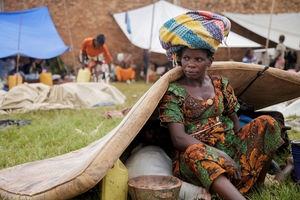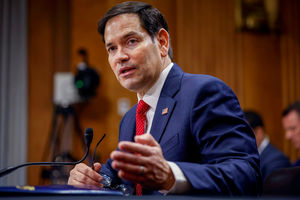Government reviews position on EPA

What you need to know:
- The government is in a dialogue with the European Union (EU) to resolve some technicalities over the Economic Partnership Agreement (Epa) before it puts pen to paper, a cabinet minister said yesterday, dispelling rumours that it had made a decision to sign the pact.
Dar es Salaam. The government is reviewing its position on the Economic Partnership Agreement (EPA) with the European Union, with a view to endorsing the deal, The Citizen has learnt.
Officials are currently engaging their EU counterparts on the agreement before a decision is made.
Member states of the East Africa Community (EAC) have three months left within which to make their respective final decisions known on EPA, which has left the countries divided.
Kenya and Rwanda have already signed the agreement, leaving Tanzania, Uganda, Burundi and South Sudan as the only countries whose decisions are awaited.
During the recent EAC Heads of State Summit in Arusha, it was agreed that after a grace period of three months, each country may go its own way due to failure to forge a common position on the EPA agreement.
Tanzania earlier rejected the deal as it was not aligned with its vision for industrialisation, with Parliament passing a motion in November 2016 rejecting the EPA.
Yesterday, Foreign Affairs and East African Cooperation minister Augustine Mahiga confirmed that negotiations with the EU were ongoing.
The minister told The Citizen in a telephone interview that they were in talks to resolve some technicalities before signing the EPA. The minister did not expound on the nature of the technicalities, only saying it was too early to speak on them.
Dr Mahiga said Tanzania will only sign the agreement after reaching a concrete agreement in the ongoing dialogue. “It is still too early to disclose the technicalities which we are yet to agree upon,” he said, noting that once the government and the EU agree on the technicalities and answer all of Tanzania’s queries, then the issue will be taken to Parliament for endorsement.
He stressed that whatever outcome would be reached, the final decision will be made by Parliament on whether to sign or not.
Sources have told The Citizen that the EU and the government recently raised their level of engagement on EPA, with the European Commission set to engage the EU Parliament last evening on the status of the EPAs.
In Tanzania, the diplomatic decision to apparently reach an amicable agreement appears to be linked to the recent visit to State House by the acting EU Head of Mission in Dar es Salaam, Mr Charles Stuart, on February 7. The State House dispatched photos of the meeting between President John Magufuli and Mr Stuart with no details of what their talks was centred on. According to our sources, the government may have relaxed its earlier stance on EPA as a means to repair its soured diplomatic relations with the EU, which saw the Brussels-based body announce a fresh review of its diplomatic and economic engagement with Tanzania.
The Tanzania-EU tiff escalated following the recalling of the former EU Head of Commission, Mr Roeland van De Geer, who left the country on November 2018 over a reported standoff with local authorities over democracy and human rights issues.
It is understood that both parties are now keen to mend strained relations in give-and-take negotiations.
In Arusha, an official of the Secretariat said yesterday the Community was not aware of the likelihood of the EAC member countries changing their position on the deal.
“The position of the EAC is what was decided during the recent summit in Arusha,” the official affirmed, noting that the decision would be made at that level. He was answering to queries on whether Tanzania had indicated any progress that may change its position on the agreement.
He said the EAC was only awaiting the expiry of the grace period given during the February 1st summit to know which way to go.
The summit held in Aruha received the progress report on EU-EAC Economic Partnership and decided that the EAC engages the EU on the matter in the next four months “to get more clarification on the pertinent issue of concern”.
The communique read at the end of the summit stressed after the grace period of four months each EAC state may go its way as far as the EAC-EU economic partnership agreement is concerned.
“Thereafter, partner states who wish to may or may not sign EPA,” emphasized the communique read by EAC secretary-general Liberat Mfumukeko.
South Sudan, a new entrant to the Community, is yet to make its position known.




